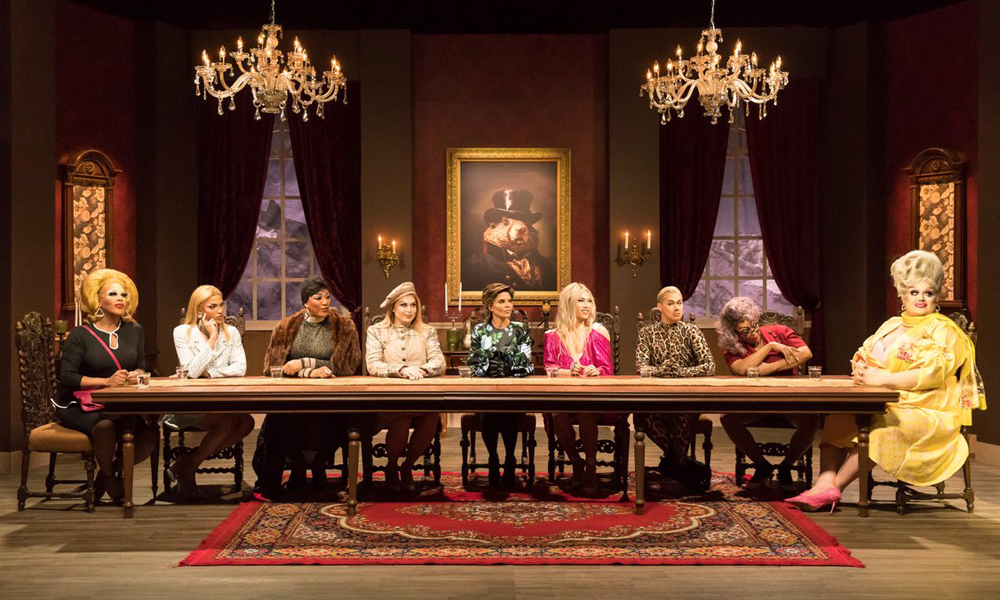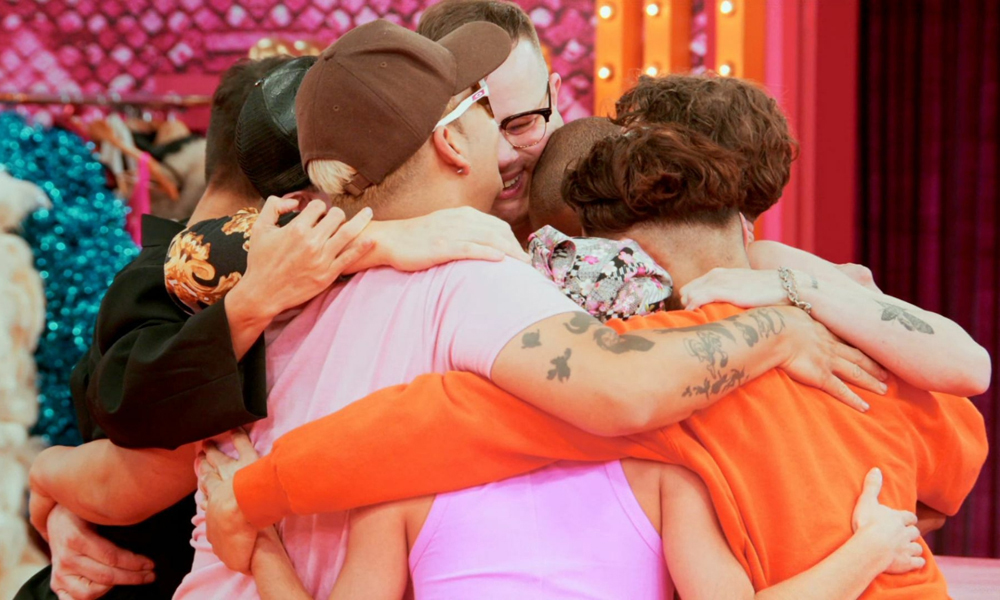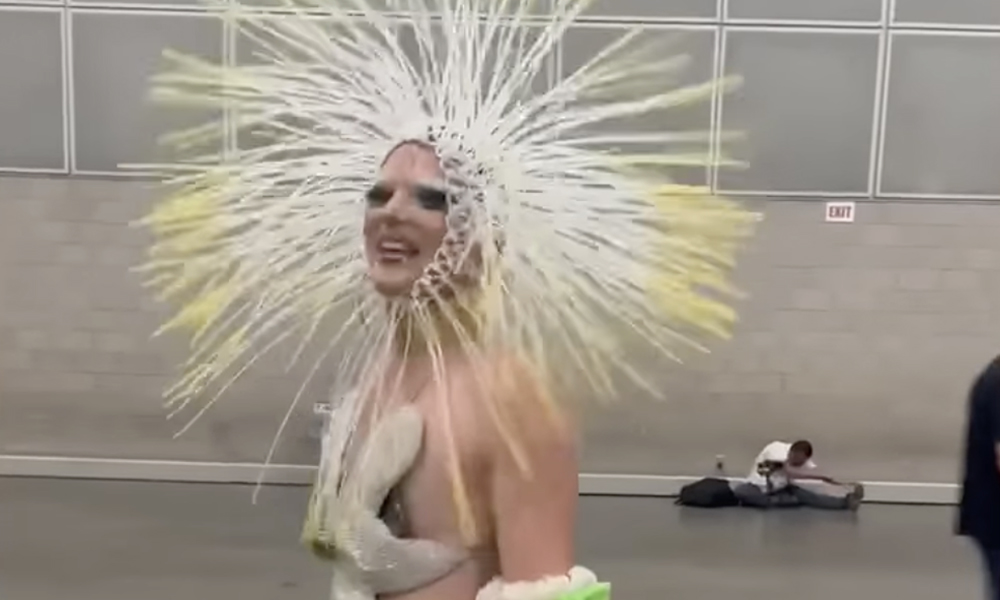Traditionally, the issue has applied only to fictional characters, but can celebrities queerbait us too?
By Bianca Guzzo
Over the past few years, more and more celebrities have been accused of queerbaiting their fans. What started as a way to identify and call out a fictional work for falsely marketing characters or stories as queer to grow an audience has now led to accusing some celebrities of that same false marketing. In some cases those accusations have even forced certain entertainers to come out publicly before they’re ready.
The desire to expose celebrities who are supposedly queerbaiting has almost become an obsession for some, with entire online communities dedicated to doing so – but can it ethically be used to call out public figures like actors and musicians the same way as it’s used to call out fictional characters? There seems to be a line that gets crossed when we hold real people to these same standards, which makes the discussion around what is and isn’t queerbaiting more complex than ever.
Queerbaiting is a marketing term and tactic where an 2SLGBTQI+ character or storyline will be hinted at without actually ever clearly identifying a character as queer. The term was popularized in the 2010s within online fandoms, most notably for television shows like Supernatural and Sherlock. In reality, queerbaiting has been used for decades as a way to market works of fiction (including books, television shows and movies) to queer people by enticing them with art they can connect and identify with, while also appealing to a heterosexual audience.
Let’s be real. It sucks. It can not only make queer fans feel like their stories aren’t important enough to be told, but also like they’re really only being used to make more money for someone else. In these cases, calling out queerbaiting is necessary. Shows and movies that use queerbaiting reinforce the idea that queer identities and narratives aren’t worthy to be the stars of their own stories. Calling out these series has also created a demand for shows that prioritize queer stories and characters, and as a result, shows like HBO’s Our Flag Means Death and Netflix’s adaptation of Heartstopper have completely changed the way we consume queer media.
As the need for genuine and unapologetic queer representation in mainstream media continues to grow, entertainers have also been the target of queerbaiting accusations. Musicians like Nick Jonas, Ariana Grande, Billie Eilish and Harry Styles have all been called out for frequenting gay bars in their free time, for lyrics or Instagram captions that hint at them being part of the queer community, or (in the case of Harry Styles) for wearing a dress on the cover of Vogue. When confronted, all of these artists have given vague statements on their sexuality.
And then there’s an entire online community dedicated to finding out if Taylor Swift is queer. Fans spend hours dissecting and decoding lyrics that align with a queer-coded narrative they’ve gotten from her work over her entire career. Swift, who “came out” as a strong ally and supporter of the LGBTQ+ community during the promotion of her Lover album, has been pretty silent on ongoing issues facing queer and trans individuals since the album’s release in 2019. Her use of the term “Lavender Haze” upon the release of her album Midnights got her a lot of backlash from her queer fanbase, who believed she was queerbaiting them after she revealed the meaning of the song was a Mad Menreference and not a nod to the lavender that has been a long-time symbol of the gay and lesbian community. Aside from one interview where she aligns herself as an ally, Swift has never publicly commented on her sexuality, nor responded to the queerbaiting accusations.
For many fans, it’s a fine line between what could potentially be queer-coding and queerbaiting when it comes to what these celebrities wear, or reading between the lines of their lyrics, which makes accusing them of queerbaiting more complicated. Are they hinting to their queer fans that they’re just like them? Or are they simply adopting an aesthetic to sell more records? For the most part, aside from a vague statement about “not labelling themselves,” they stay silent, but sometimes the push of the accusations goes so far that celebrities feel they have no choice but to respond.
After Heartstopper premiered on Netflix in 2022, some fans of the series became obsessed with finding out if the on-screen chemistry of the actors translated to real-life relationships behind the scenes. Once photos started circulating online of one of the show’s leads, Kit Connor, holding hands with a female co-star from another project, a number of fans started questioning if he was an appropriate choice to continue playing Nick Nelson since he was “obviously straight.” A small number of fans were even calling for the role to be re-cast. Connor, who had previously left Twitter due to the toxicity of the Heartstopper fandom, came back only to reveal that like the character he plays, he is in fact bisexual. In his statement, he also made sure to let certain fans know they had pushed him to publicly come out before he wanted to.
This was disappointing for a number of reasons. Connor’s sexuality is really none of our business, and we’re also not owed any sort of explanation or statement on his personal life. Connor was playing a character as his job, and these so-called fans had completely missed the entire message of the show. What happened to Connor left an impression on fans in online communities, and many still use it as a cautionary example when others try to pry into the personal lives and relationships of other entertainers.
It can get incredibly frustrating to see public figures seemingly using the queer community as a marketing scheme in order to cash in on whatever they’re selling. Representation of queer identities in mainstream pop culture is needed now more than ever, but the quest for genuine representation can lead us into dangerous territory if we’re not careful. As queer people, we know there may be factors that could influence someone’s choice to not come out publicly. Are they clearly dipping their toes in queer culture and wearing it as a costume to sell us something? Or are they instead only sharing small bits of their true selves as protection? We may never get clear answers, but for the remainder of 2023 and looking ahead to a new year we also have the opportunity to uplift celebrities and stories that are unabashedly queer and hope that sometime in the future queerbaiting will be a thing of the past.
BIANCA GUZZO is a writer based out of the GTA. She spends her free time watching Trixie Mattel makeup tutorials, though she has yet to nail the look.







POST A COMMENT